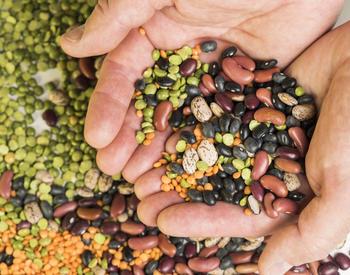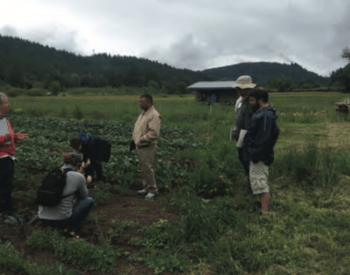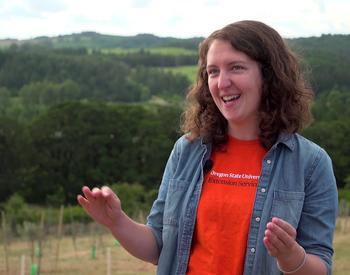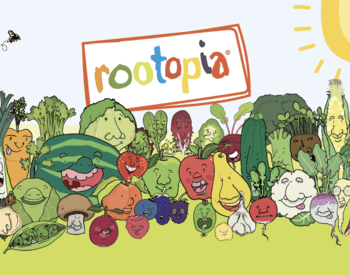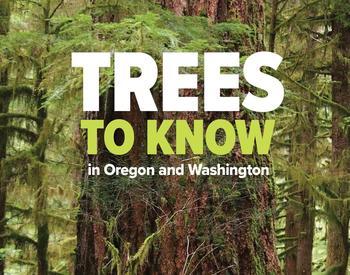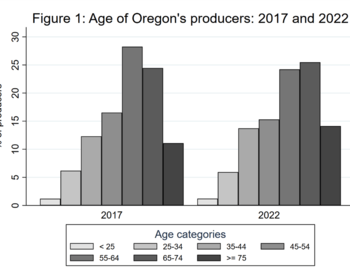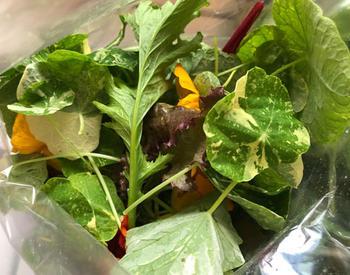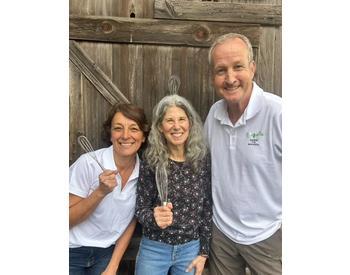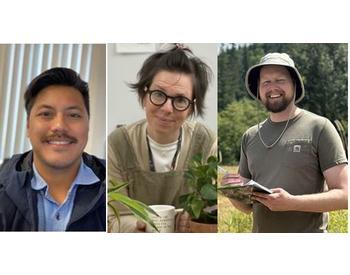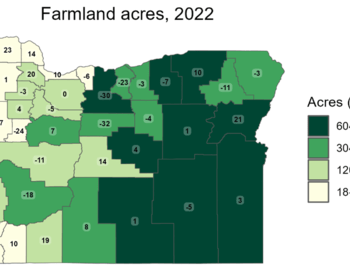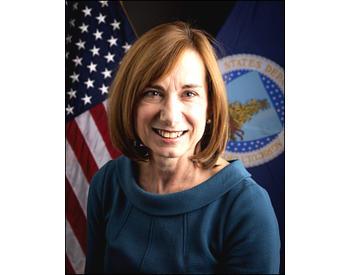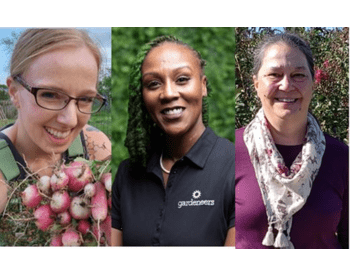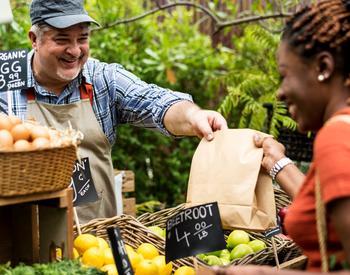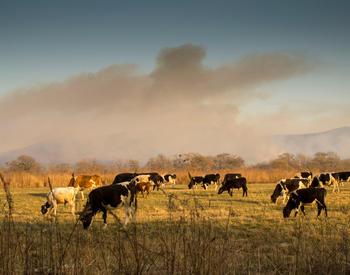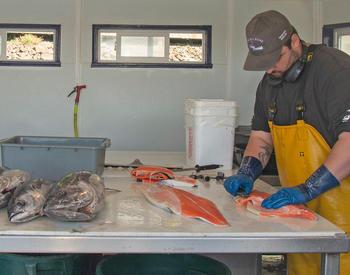Captioning provided by Disability Access Services
at Oregon State University.
[program music]
Aluna Michelle: So yeah, welcome.
This is a farmhouse that our landlord's grandparents built.
[keys rattling]
It's cooler in here at least.
My name is Aluna Michelle and I am a co-owner of and operator
of the Happy Dirt Veggie Patch
which is a small organic diversified vegetable farm
in south Medford, Oregon.
I was calling myself an Extension Service junkie
or groupie or I forget what I was calling myself for a while.
But it was like I took three different courses from them,
two at the same time in quick succession.
I just love that program.
A lot of the reason why I took those OSU programs
was because I wanted to really have a crash course
in cultivating in this valley,
in this climate because I was new to the valley.
Maud Powell: The small farms program is necessary
because there is so much interest from the consumer angle
in being able to access local foods and local foods security.
You have the customer interest on the one hand
and then on the other hand you have this large group of people
from people just out of college
who are looking for their lifetime vocation in small farms,
you've got people that are retiring,
that are buying a small acreage and want some kind of enterprise.
So there is this real need for small-farms training
especially around starting a business and managing a business.
We have a pretty robust "Beginning Farming" program.
Pretty much every month of the year
we have some kind of programming for beginning farmers.
We start off in the fall with a one-evening class called
"What to do with my small farm."
Then we move on from there to a four-week feasibility study class,
it's called, "Exploring the small farm dream"
and it helps people answer some of the initial questions.
What are their goals?
What are their resources?
What do they really want to get out of having a small farm?
In the past five years we have had about 80 graduates
of the "Exploring the small farm dream" in Southern Oregon.
Once they graduate from that class they are eligible
to take the "Growing Farms" six-week business class
that is actually a statewide program,
and we just recently got funding
to be able to have it be an online offering as well.
Since 2007 we've had approximately 150 graduates
of the "Growing Farms" business class in Southern Oregon.
Just today I was down at the Ashland growers market
and I was walking around seeing that most of the small farms
who have stands there have taken "Growing Farms"
at one time or another.
Once they complete "Growing Farms," if they are interested
they can move on to the "Growing Agripreneurs" program
which is just in its third year.
That is a seven-month long training program for beginning farmers.
It has a hands-on component.
We have an acre and a third Franklin teaching farm
here at the Southern Oregon Research and Extension Center.
They spend about three hours a week working on the plot
alongside a farm manager who acts as a mentor to them.
Then they also take classes and have skill-building sessions
and have access to farm tours throughout the season.
Including this year's program, we've had about 20 graduates
of "Growing Agripreneurs" in Southern Oregon.
Beyond that we have our League of Women Farmers,
which is a nice farmers network for women
that are involved in agriculture, and we do have a quarterly
farmer-to-farmer meeting.
Those are ways that farmers can continue to plug in
once they go through that beginning farmer program.
Aluna Michelle: What the Extension Service does
is it brings people together who are interested
in creating sustainable livelihoods off this land.
Farming here, you know, it is competitive
but it also means there is a lot of support
and it feels like the atmosphere, just the culture,
is surprisingly open.
The Extension Service, I feel like, helps to really create that.
It forms that platform of openness, of sharing.
It encourages people to share with each other knowledge
and to support each other.
That's just one of the reasons
that I'm so appreciative of the Extension Service.
[program music]
[END]
